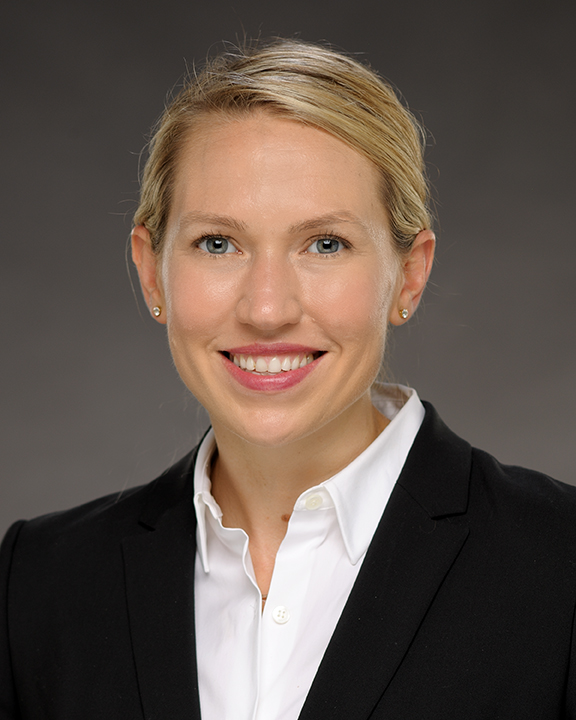As medical groups, health systems and health plans across the U.S. continue to feel the impact of COVID-19 and the Great Resignation, many are struggling to build sustainable pipelines of qualified staff and providers. Physician burnout, retirement and inflation are all factors leading individuals to leave the profession and/or retire. Recent studies have indicated that greater than 73% of physicians report feeling overworked during the COVID-19 pandemic. This has led many to re-evaluate their commitment to the profession of practicing medicine. Although some physicians have seen an increase in pay, the increase has not been substantial enough to outpace current inflation. This means that many physicians are seeing a decrease in “real income”. Additionally, there has been growing burnout related to the “administrative aspects” for physicians. This can include all the extra items they have to document in EMR, taking away from actual patient care time, having less actual time with your patients, or not enough team members to help deliver the care. These factors combined with current inflation trends are forcing many physicians to retire early or look for different career opportunities all together.
Over the last decade there has been an increased interest in the utilization of Advanced Practice Providers (APPs) to help bridge the gap in patient care caused by shortage of physicians, growing numbers of patients as well as the needs of patient care. Unfortunately, APPs have also reported high rates of burnout during the pandemic leading to shortages of PAs and advanced practice nurses as well. While demand for APPs increases, academic programs struggle to keep up and produce the number of graduates needed. Advanced Practice Nursing and Physician Assistant programs come at an extremely high cost to students and are often only structured to accommodate full time students in a traditional Monday-Friday daytime schedule. Clinical rotations are difficult to find, particularly at the level of quality needed to ensure successful transition into practice.
Additionally, all providers need support staff to assist with patient care. This includes a strong and capable team of Registered Nurses, Medical Assistants, Certified Nursing Assistants, Community Health Workers, or Navigators and many more. The members of the overall workforce team is no different in reporting burnout during the pandemic. Moreover they face similar issues to APPs when it comes to the high cost of schooling and limited flexible educational opportunities.
Finally, providers and other members of the health care team have to be ready to perform within value-based care (VBC) frameworks amidst the growing trend to move providers into risk arrangements. Over the past several years, there has been a strong push by the Center for Medicare and Medicaid Services (CMS) and commercial payors to shift payment and care delivery models. This shift aims to tie payments to value and patient outcomes. In these arrangements, providers and health systems are paid based on improvements in quality, patient experience and the total cost of care. In order to be successful in these arrangements, medical groups and health systems have not only had to address their current workforce shortages, but also evaluate the workforce transformation needed to deliver high quality, cost-effective care for their patients.
Some of the key considerations related to workforce transformation for organizations transitioning to VBC are:
- Success requires a team-based model to address all aspects of patient care and may include new roles to adequately support the team and utilize each team member to their full scope/license.
- All staff need to be trained and educated on what value-based care means and the impact of their role within a VBC organizational framework and processes. This is not something that is traditionally included in academic programs and therefore needs to be handled by the medical group or health system.
- Primary care providers need to understand and feel confident in managing increasingly complex and chronically ill patients in the appropriate setting and how to leverage care management in treatment plans.
- Programs need to be put in place to train workforce and create large applicant flow within the organizations.
- Programs need to be put in place to ensure pipeline of candidates for positions along career ladders.
There are many approaches that organizations can take when addressing these considerations and the team of experts at COPE Health Solutions can help you develop and implement innovative solutions targeted at building a sustainable workforce that is educated in value-based care.
Below are several programs that have helped our clients overcome workforce challenges and build high-functioning, successful clinical teams.
Medical Assistant School
Our team can help you in building your own in-house Medical Assistant (MA) school configured to your specific needs. Through the use of hybrid education models that include synchronous and asynchronous study, we can increase the number of certified candidates to fill vacancies through a direct pipeline. The program can be designed to allow students to work full time while completing their studies to create more opportunities or built to employ the students and utilize them while they continue training to be MA within your organization. Our programs recruit from the local community to ensure your staff is representative of the patients they serve often leading to better patient outcomes through increased cultural awareness and competency. Our customizable curriculum ensures that all your Medical Assistants are trained in value-based care and understand the impact of their role in delivering quality, cost-effective care.
Advanced Practice Provider Fellowships
The primary goal of these fellowship programs is to help prepare Advanced Practice Providers for practice in any type of setting, ensuring they can transition appropriately to practice and be successful and retained withing your organization. Our team can help you develop primary care and/or specialty care fellowships (for Nurse Practitioners and Physician Assistants) that help bridge the gap between academic theory and clinical practice, while also ensuring all of your providers are well versed in value-based care.
COPE Health Solutions’ fellowship program include components of clinical competencies, new provider transitions and toolkits, value-based care education and professional/leadership development. The new provider toolkits help the APP successfully transition and avoid burnout. Throughout the program, fellows work directly with preceptors and mentors to increase their confidence in practice and gain exposure to multiple practicing styles. Upon completion of the program, these individuals are prepared to take on full patient panels and integrate seamlessly into your organization’s care teams.
Care Navigator (or Community Health Worker, Care Coordinator) Training
In addition to educating new and current staff, there is also a need to create new roles that address all aspects of patient care in value-based care organizations. Our Care Navigator training program prepares individuals to support your Care Management team in improving quality of care and revenue capture, while also scaling to ensure an appropriate number of team members to support all patients. Our comprehensive approach includes recruitment of staff, care model training for each role as needed in the care model and a management model that increases capacity to close both medical and social determinants of health care gaps. These programs can be utilized to support various types of populations and both primary and specialty care practices.
Complete Workforce Training
We know that all team members (Patient Representatives, Nursing staff, Medical Assistants and Providers) contribute to patient care and quality outcomes. That is why it is vital that they all understand their role and impact in value-based care. Let our team of experts develop training programs that can be deployed across all clinical and non-clinical positions to help them understand the current healthcare landscape and how they can aid in provide quality, cost-effective care. Our teams can manage these programs as well, decreasing the burden on your organization.
Reach out today to connect with someone on our team to learn more about how we can help your organization overcome current workforce challenges and ensure success in value-based care.

